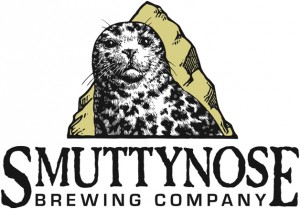
Beginning Tuesday, Smuttynose’s beers will be available in the cities of Chattanooga and Cleveland, Tenn. per an agreement with Carter Distributing, it announced today.
Peter Egelston, brewery founder and president, said he was drawn to the relatively small amount of craft brands in Carter’s portfolio.
“Carter has some strong craft brands but their roster isn’t too big,” he said.
Indeed, Carter does sell a few of the more notable craft beer offerings including Lagunitas and Dogfish Head.
“We understood early on that they’ve got a deep understanding of the growing craft beer market in East Tennessee and enough energy to represent us well,” Egelston added. “We’ll make sure we have enough beer to meet their needs.”
Until recently, however, Smuttynose was struggling to meet consumer demand in its newest markets, a problem that was stifling growth.
“When you’re in a business, there’s nothing worse than someone saying ‘I want to buy that thing you make,’ and you have to tell them ‘no,’” said company spokesman J.T. Thompson.
Hampered by capacity constraints, Smuttynose grew production just 4 percent last year, to 42,342 barrels, according to statistics from the Brewers Association. By comparison, the craft category grew 17.7 percent during the same period.
But with added capacity, the company is looking forward to greater gains in 2014, Thompson said. The company recently expanded into a new production facility and the additional space should immediately increase capacity to about 65,000 barrels annually “depending on brand mix,” said Thompson.
With the addition of Tenn., Smuttynose beers are now sold 24 states and Washington D.C. The company also recently began distributing to Puerto Rico and is currently working to expand internationally in Sweden, the United Kingdom, Germany, and South Korea.
Thompson said the international focus has been inspired by a “perceived extra value” of American beer overseas.
“It’s sort of like what Belgian beer was in this country,” he said. “Having a Belgian style beer that was from Belgium was really cool. I think American beer is in that spot.”
Regardless of where it’s being consumed, the brewery’s flagship, Finestkind IPA, is still its best-selling product — it accounted for 43 percent of the brewery’s overall sales in 2013.
Perhaps unsurprisingly, given the growing popularity of the IPA category, Bouncy House IPA, which was introduced in April as a new, low-alcohol year-round offering, has been making gains as well.
“Bouncy House is doing very well,” said Thompson. “We’ve had a lot of re-orders. We’ve got a lot of tanks going in various stages of production just to keep up with the re-orders.”
The release of Bouncy House earlier this year coincided both the release of Vunderbar Pilsner and the retirement of the Belgian-style pale ale, Star Island Single. The portfolio shakeup, and the added capacity, has brought the company’s original entrepreneurial spirit back to the brewhouse, said Thompson.
“In some ways it feels like we’re a startup as we turn 20,” he said.
